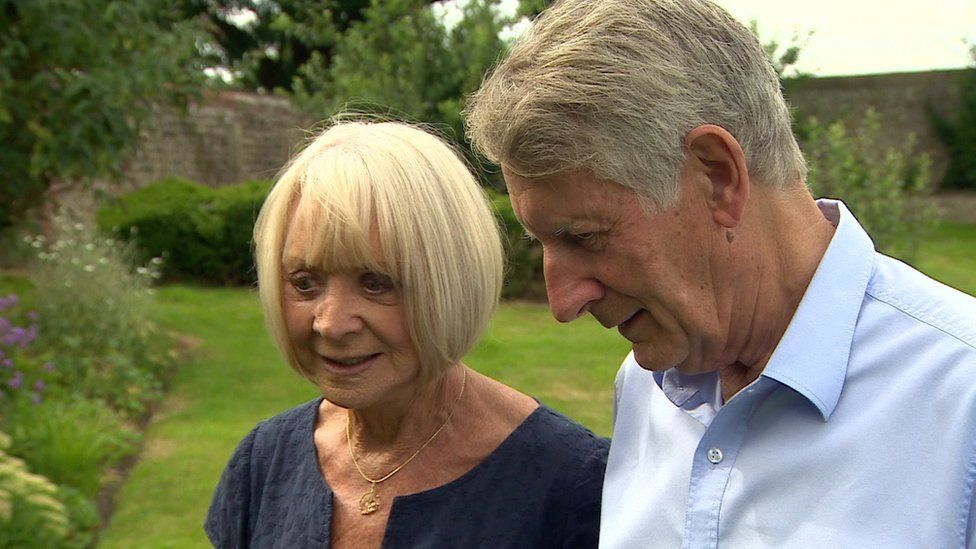Hundreds of volunteers to help spot early Alzheimer's
- Published

British researchers are hoping to shed new light on the very early stages of Alzheimer's disease, with the help of hundreds of volunteers.
Using techniques including wearable technology, they are looking for what are known as biomarkers - the very early physical signs of the disease.
These can be spotted long before more obvious symptoms emerge.
They hope it will open up new avenues for tackling Alzheimer's before the brain suffers serious damage.
Alzheimer's researcher Simon Lovestone: "We're going to do every single test"
Nearly 47 million people worldwide were estimated to be living with dementia in 2015.
Troubling questions
Experts hope to find new markers - tell-tale signs on eye scans, brain scans or in the blood, for example - that might offer the earliest clue of the onset of dementia.
The research, funded by the National Institute for Health Research and the Medical Research Council, is being aided by around 250 volunteers, including former university academic Peter Lindon.
He has been diagnosed with Alzheimer's disease and hopes his involvement in this latest research project may answer some troubling questions.
"The importance is hard to overestimate because the question of one's short-term memory deteriorating has many consequences," he says.
"The major concern one is principally bothered about is how much time you've got when you're likely to be competent, until the time that you are no longer competent."
Peter has undergone a whole range of tests, mental and physical, to help researchers identify the biomarkers for Alzheimer's with early diagnosis possibly the best hope of finding an effective treatment.
Race against time
- Every three minutes, someone in the UK develops dementia, most commonly through Alzheimer's disease.
- Alzheimer's is caused by faulty proteins called amyloid and tau that build up in the brain.
- New research shows that good quality sleep throughout life can help delay onset of the disease.
Researcher Jennifer Lawson, from Oxford University, says: "Over the last decade or more, 99% of clinical trials into treatments for Alzheimer's disease have failed.
"We think the reason for that is we are simply trying these in people far too late.
"By the time someone comes to their GP and they think they might have some memory problems and they get a diagnosis of Alzheimer's, it's likely the brain has been under attack from this illness for 10 or even 20 years before."
Walk this way
In a highly-equipped laboratory in Newcastle University's Clinical Ageing Research Unit, another volunteer, Trish Jones, has undergone an examination of how she walks, known as a "gait test".
This research uses cheap and portable wearable technology to track how Trish moves, meaning it can be used as she goes about her everyday life.
As Trish acknowledges, that gives researchers a much more accurate picture of what is really going on.
"The fact is that when I'm walking normally, I do have a wobble," she says. "Walking here in the lab is very straightforward, no wobbles, no nothing!
"It doesn't show you the right picture so it's important to have this on for seven days because when I'm walking normally I can be distracted and just start veering off.
"People probably think I'm drunk, I don't know - I hope not!"
Biomarker clues
Lynn Rochester, professor of human movement science at Newcastle University, says the act of walking can give us vital clues about how the brain is functioning.
"Gait, or how someone walks, isn't on the face of it an obvious thing that we'd want to measure in this type of study.
"But we're not headless chickens, we have to think about what we're doing with our feet and particularly when we are walking around in the real world.
"You have to make a lot of decisions about navigation, someone might be distracting you and talking to you, you are turning and looking at obstacles in the environment, so there's an awful lot of cognitive skills that are required to enable someone to walk safely and independently."
- Published16 August 2016
- Published27 July 2016